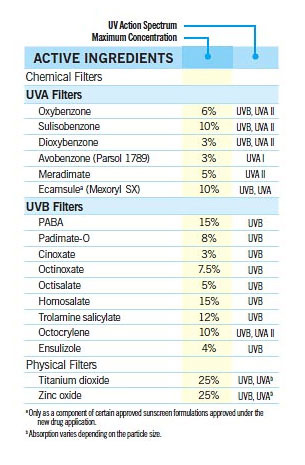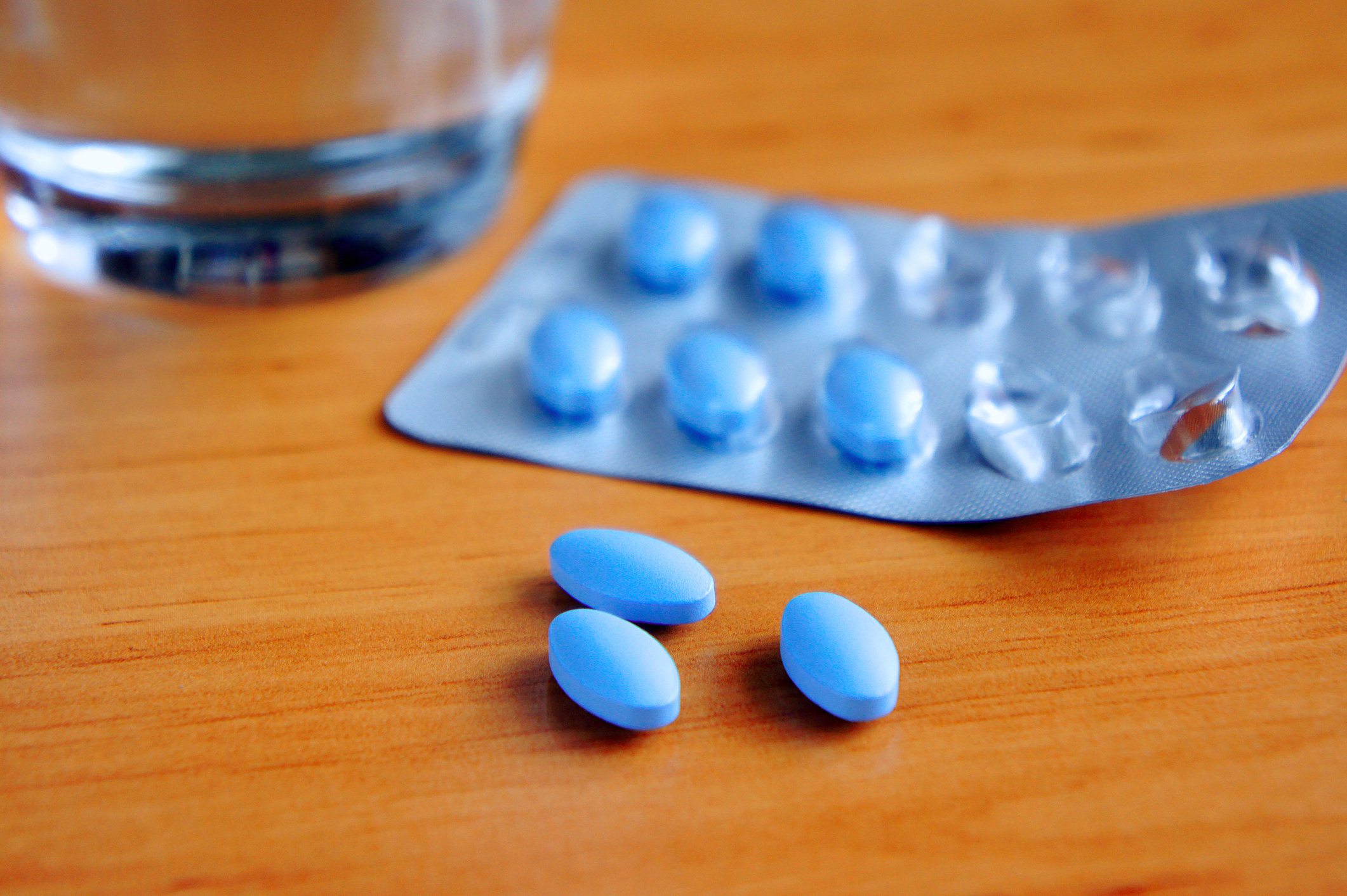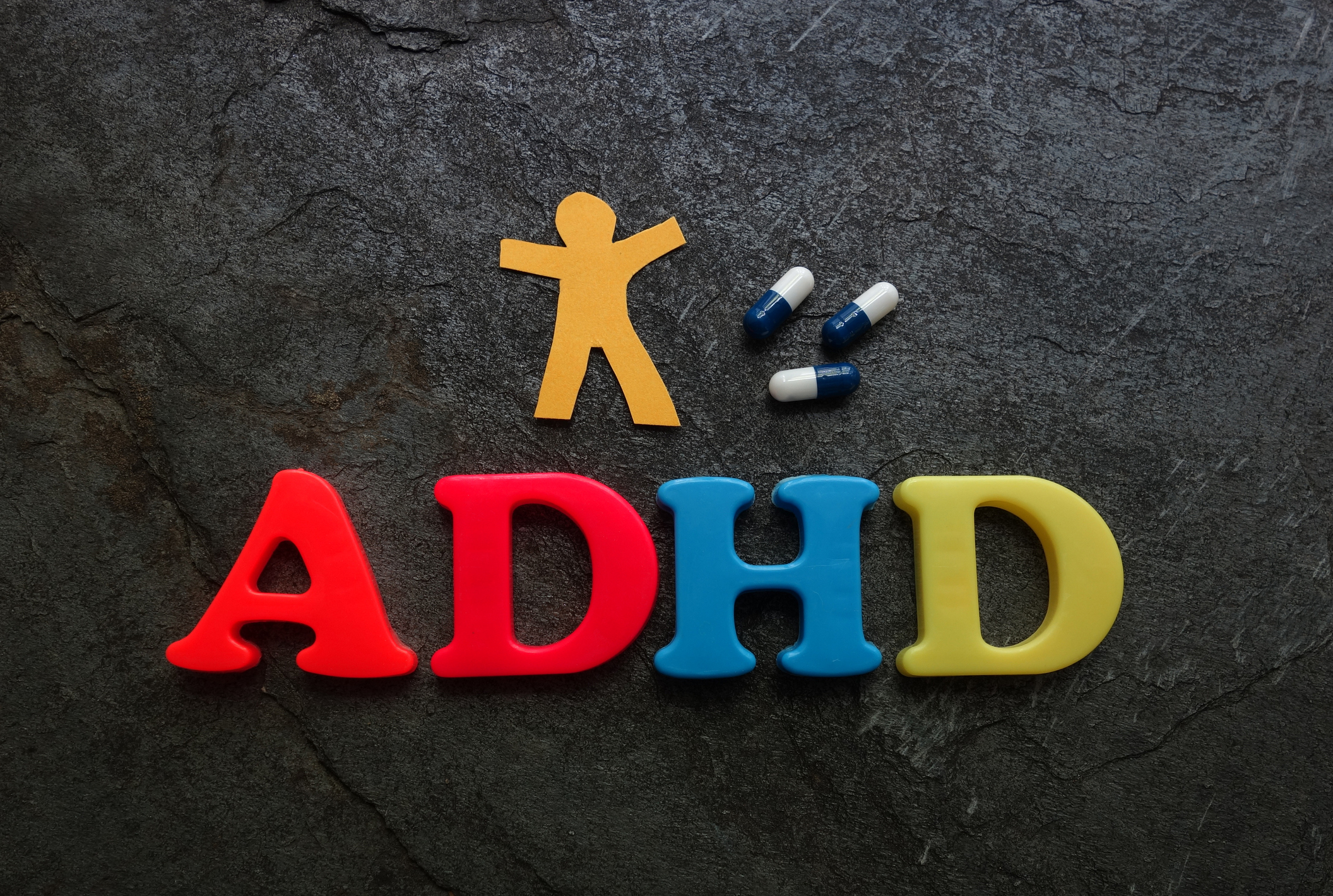Does Sunscreen Cause Cancer?
by Pattiya Wattananimitgul
September 11, 2018

According to the Centers of Disease Control and Prevention (CDC), approximately 5 million Americans are treated with skin cancer each year.1 Overexposure of ultraviolet (UV) rays from the sun is proven to be a major cause of skin cancer.2 In fact, approximately 90% of all skin cancers are associated with exposure to the sun’s harmful rays.3 One way to protect your skin from the harmful UV rays is wearing a sunscreen. However, you may have heard that ingredients in sunscreens can cause cancer, and not just skin cancer but also breast, prostate, and other types of cancer.4 But is it true? Does sunscreen, which is supposed to protect us from skin cancer, actually lead to cancer and other health problems?
Oxybenzone
Oxybenzone is a common active ingredient in sunscreens that absorbs the UVA and UVB radiation and then dissipates it as heat.5 Oxybenzone penetrates through the skin, and then gets metabolized and excreted through urine and feces.6 Some studies suggest that oxybenzone may have an impact on the endocrine system, disrupting hormone levels and potentially causing hormone-related cancer. These studies were actually done on rats. A human study suggested that oxybenzone, even at a high concentration, does not cause hormone disruption. The conclusion is that oxybenzone is an FDA-approved chemical to protect your skin from the sun’s radiation, and currently there is not enough evidence to prove or suggest that oxybenzone causes hormone disruption and cancer in humans.3,7,8
Retinyl Palmitate
Retinyl palmitate is another ingredient commonly added to sunscreens as a skin conditioner. It is a form of vitamin A, known to help slow down premature skin aging. There is some concern, based on a small number of studies, that the free radicals generated from retinyl palmitate may cause changes to our cells and cause skin cancer. However, no studies suggested that these changes are cancerous or increase cancer risks.3,7,8 In fact, a form of vitamin A called retinoids has been used for decades to help protect people with high risk of developing skin cancers from getting skin cancer, according to the American Academy of Dermatology.9
Zinc Oxide and Titanium Dioxide
Zinc oxide and titanium dioxide are nanoparticles that physically protect your skin from UVA and UVB radiation. Some studies indicated that these active ingredients can be absorbed in the skin and cause cells damage. However, according to current studies, these nanoparticles stay on the skin’s surface and do not penetrate the skin when applied.3
Protect Yourself from UV Rays
The main takeaway is that you should always wear sunscreen when going outside, even when it’s cloudy. The known benefits of regular sunscreen use outweigh the unproven risks of potential toxicity. The type of sunscreen you use is up to you, whether it is chemical or physical. However, make sure the ingredient protects both UVA and UVB radiation (broad-spectrum) with SPF of at least 30. Below is a chart by the Skin Cancer Foundation of US Food and Drug Administration (FDA)-approved active ingredients that can be found in sunscreen and their UV action spectrum.3 When using sunscreen, make sure to cover all the exposed skin and reapply the sunscreen every two hours, or right after swimming or sweating. Other ways to protect yourself from the harmful UV rays are9:
- Seeking shade between 10 a.m. to 2 p.m., when the sun’s rays are strongest
- Wearing protective clothing such as lightweight long sleeve shirt, pants, broad-brimmed hat, and UV-protection sunglasses
- Avoiding tanning beds

Warwick, M. L., MD, MB, & Wang, S. Q., MD. (2011, November 11). Suncreens: Safe and Effective?
Retrieved August 6, 2018, from https://www.skincancer.org/prevention/sun-protection/sunscreen/sunscreens-safe-and-effective
Resources
- Cancer Prevention and Control. (2015, September 03). Retrieved August 6, 2018, from https://www.cdc.gov/cancer/dcpc/research/articles/sunscreen-use.htm
- The Facts About Sunscreen. (2018, January 11). Retrieved August 6, 2018, from https://www.melanoma.org/understand-melanoma/preventing-melanoma/facts-about-sunscreen
- Warwick, M. L., MD, MB, & Wang, S. Q., MD. (2011, November 11). Suncreens: Safe and Effective? Retrieved August 6, 2018, from https://www.skincancer.org/prevention/sun-protection/sunscreen/sunscreens-safe-and-effective
- Do Sunscreens Cause Cancer? (2018, June 12). Retrieved August 6, 2018, from https://sciencebasedmedicine.org/do-sunscreens-cause-cancer/
- How does sunscreen work? (2017, August 14). Retrieved August 6, 2018, from http://www.loc.gov/rr/scitech/mysteries/sunscreen.html
- Jiang, R., Roberts, M. S., Collins, D. M., & Benson, H. A. E. (1999). Absorption of sunscreens across human skin: an evaluation of commercial products for children and adults. British Journal of Clinical Pharmacology, 48(4), 635–637. http://doi.org/10.1046/j.1365-2125.1999.00056.x
- Janjua, N. R., Mogensen, B., Andersson, A., Petersen, J. H., Henriksen, M., Skakkebæk, N. E., & Wulf, H. C. (2004). Systemic Absorption of the Sunscreens Benzophenone-3, Octyl-Methoxycinnamate, and 3-(4-Methyl-Benzylidene) Camphor After Whole-Body Topical Application and Reproductive Hormone Levels in Humans. Journal of Investigative Dermatology,123(1), 57-61. doi:10.1111/j.0022-202x.2004.22725.x
- Can the chemicals in sunscreen cause cancer – Canadian Cancer Society. (n.d.). Retrieved August 6, 2018, from http://www.cancer.ca/en/prevention-and-screening/reduce-cancer-risk/make-healthy-choices/be-sun-safe/can-the-chemicals-in-sunscreen-cause-cancer/?region=on
- Is sunscreen safe? (n.d.). Retrieved August 6, 2018, from https://www.aad.org/public/spot-skin-cancer/learn-about-skin-cancer/prevent/is-sunsceen-safe
Download the free WellRx app from the iOS app store or the Google Play Store,
and get registered to take advantage of our free medication adherence tools.
If you’re struggling to afford your medications,
visit www.WellRx.com to compare the cash price at pharmacies near you.
You may find prices lower than your insurance co-pay!
Recommended Articles









